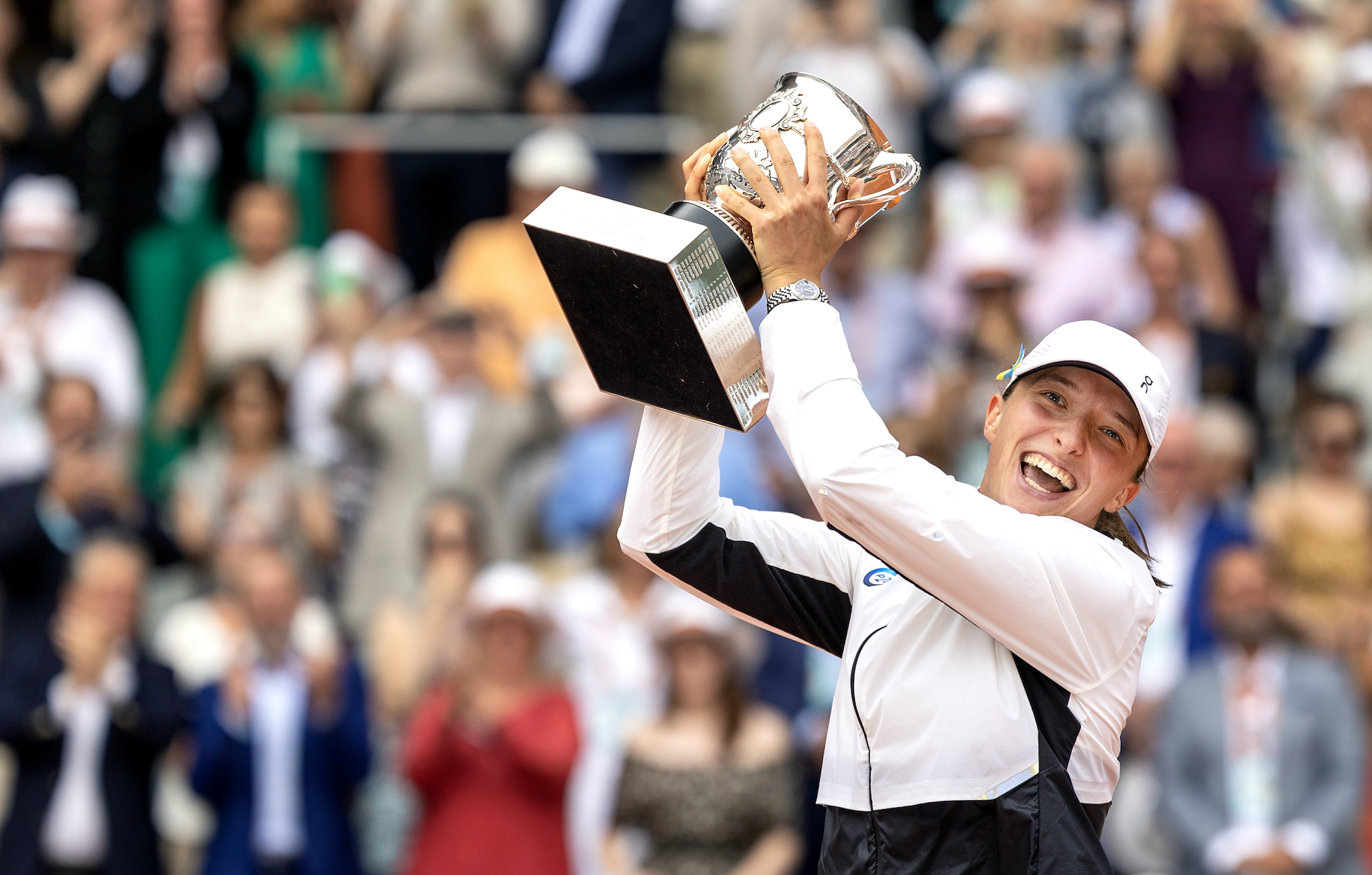For Iga Swiatek, the 22-year-old on top of the women's game, Saturday's French Open final was not quite the test she had been prepping for. The women's draw and the season to date made it look as if her opponent would be the No. 2 seed Aryna Sabalenka, who, like Swiatek, did not drop a set through five rounds. But circumstances change: Sabalenka was upset in the semifinal by the unseeded Karolina Muchova, who would be making her first-ever appearance in a major final. While it looked at first as though the top seed might run away with the title against an unseasoned opponent, the result was instead an absorbing three-setter, with victory there for either player's taking before Swiatek inched ahead to win her third Roland-Garros title and fourth major overall, 6-2, 5-7, 6-4.
The gap between Swiatek and the rest of the tour might not be as chasmic as it was in her 2022 season, but it's still big enough that one could get accustomed to her annihilating opponents with topspin and focus. The only downside of a star's transcendence—for the audience, at least—is an underwhelming level of competition, and through the first hour of play, the damage was familiar. When Swiatek led an error-prone Muchova 6-2, 2-0, it looked as though she would preserve an impressive streak: zero sets dropped in her major finals.
Instead, Swiatek tightened up, as if hoping to kill time on a game clock that does not exist in this sport. Meanwhile, Muchova powered up the intuitive all-court game that got her to the final and has earned her so much goodwill from tennis heads, even as injuries muddled her career. Carrying a very deceptive No. 43 ranking heading into the tournament, she's still a former world No. 19 with a major semifinal and two quarterfinals in her past. In her tremendous semifinal win on Thursday, dealing with Sabalenka's total power, Muchova had revealed possibly the most varied offensive toolkit on the tour. In the second set of Saturday's final, she began to show Swiatek those same looks. Swiatek will always destroy players hoping to best her at her own baseline style, but Muchova does something different. When healthy and rolling, she looks like a top-10 staple, blending power, anticipation, and touch. It's hard to argue with these hands:
Sacrificing the BODY 🤯#RolandGarros | @karomuchova7 pic.twitter.com/v6H78TZpOs
— Roland-Garros (@rolandgarros) June 10, 2023
What could have been a rout instead transformed into something choppier. There were five breaks of serve in the second set, and five more in the third, as each player moved through patches of momentum and stagnancy, while managing wind, nerves, and their opponent's brilliance. Muchova, who moved up to world No. 15 after this narrow loss, even led by a break at 4-3 in the third. Her first major title was there for the taking. But Swiatek took it instead, ripping through three straight games for the championship. Deciding sets in tennis so often turn on these sustained bursts of focus, and Swiatek—the consummate frontrunner, finally under scoreboard pressure in a final of this magnitude—found exactly that to supplement what is already a Hall of Fame career. She grew up idolizing Rafael Nadal, and there are traces of his topspin and court coverage in her own game, but perhaps her best homage to date is this: a career 28-2 record at Roland Garros, with more titles lying in wait.






